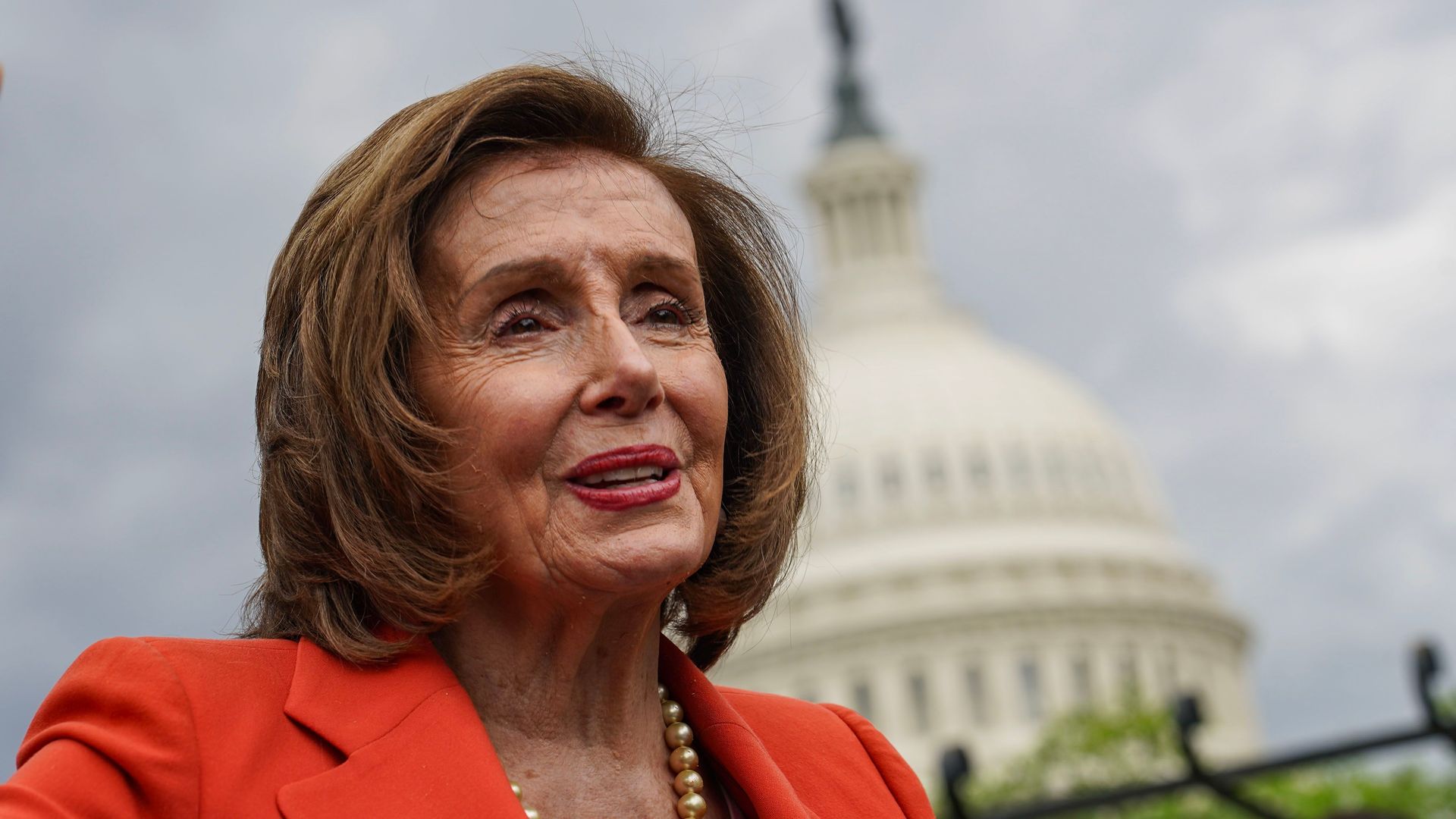Politics
Nancy Pelosi’s Key Role in Biden’s Decision to Exit His Presidential Campaign

The recent political landscape has undergone a notable transformation, largely attributed to the actions of former Speaker of the House Nancy Pelosi. Following a cascade of discontent within the Democratic Party surrounding President Joe Biden‘s bid for reelection, it has come to light that Pelosi has played a clandestine yet pivotal role in nudging Biden toward the decision to suspend his campaign.
Since stepping down as Speaker in 2022, Pelosi has been navigating the complexities of Congress as simply another Democratic member from San Francisco. Yet her political acumen, long respected by both allies and adversaries, has not diminished with her shift to the backbenches. Observers within political circles highlight her intricate network and political prowess, underscoring that her influence has remained formidable.
Marc Sandalow, former Washington bureau chief for the San Francisco Chronicle and author of a biography on Pelosi, remarked, “She is very much a behind-the-scenes vote-counting tactician. That’s what she’s good at. She knows how to win.” This reputation as a calculating political realist has characterized much of her career.
In recent weeks, as unease grew among party insiders regarding Biden’s performance, particularly after a disastrous debate, Pelosi was reportedly integral in steering the conversation toward asking Biden to reconsider his candidacy. With Democratic sentiment shifting and vulnerability at stake for various congressional members, Pelosi assured her colleagues of support, stating she would actively help them pursue election strategies.
The atmosphere escalated when Rep. Adam Schiff became one of the first prominent Democrats to call upon Biden to step aside, sparking further discussions among party leaders. Long viewed as Schiff’s mentor, many attributed this public statement to Pelosi’s influence, further solidifying her reputation as a master strategist.
Pelosi’s longstanding relationship with Biden plays a significant role in understanding her approach. While there is considerable affection between the two, the political stakes remain paramount. As noted by many Democratic insiders, Pelosi’s inclination is molded by a desire for party success, often termed as “cold-blooded,” a moniker she seems to embrace.
This notion of pragmatic electability over ideological fervor has made her a unique figure in Democratic politics. John Lawrence, her former chief of staff, points out that Pelosi’s decisions are fundamentally based not on ideology but on what is feasible—factors that weigh heavily in the political arena.
Reflecting on her background, Pelosi’s life story reveals the foundations upon which her political strategies are built. Growing up in a politically active family in Baltimore, she was molded by her experiences in a community ingrained with Democratic ideals. Her ascent through California‘s Democratic ranks, overcoming gender biases and social challenges, reflects resilience and the ability to pivot in political discourse.
As the political winds shifted this election cycle, Pelosi kept her focus on the realities of a competitive environment. When Biden continued to express commitment to his campaign amidst growing pressures, Pelosi tactically kept the conversation alive in media circles, encouraging lawmakers to vocalize their concerns regarding potential electoral consequences.
As the landscape intensified, representatives like Schiff, Lofgren, and Huffman strapped their political futures to the outcomes of Pelosi’s maneuvering. Remarkably, Schiff’s call for Biden to step aside catalyzed a wave of similar sentiments among his peers, highlighting the delicate balance of power and influence within the party.
The narrative surrounding Biden’s decision to bow out of the race emerged gradually, informed substantially by conversations with Pelosi and how closely she engaged with vulnerable lawmakers assessing their electoral viability. This careful orchestration underscores her longstanding belief in preparing the ground for significant political shifts, ensuring that critical decisions appear organically derived from within the party.
On the day Biden formally announced his exit, the chorus of endorsements emerged quickly, led by Pelosi’s commendation of his legacy and contributions. In a statement laden with appreciation, she referred to Biden as “a patriotic American who has always put our country first,” a reflection of the deep-seated respect even amidst the current political upheaval.
As conversations continue about who might occupy the Democratic nomination following Biden’s exit, the weight of Pelosi’s influence remains in play. Figures like Kamala Harris have emerged as frontrunners, yet with Pelosi’s reputation for strategic maneuvering, the path to nomination is projected to be complex rather than straightforward.
Despite Pelosi’s finesse, concerns loom among some Democrats regarding the uncertainties ahead. The Republican Party has already hinted at potential legal challenges relating to Biden’s exit, suggesting further complications in the electoral process. The stakes are high, and as lawmakers wrestle with party strategy, Pelosi’s role remains crucial in guiding the Democratic narrative moving forward.
As the political landscape continues to evolve, Nancy Pelosi retains a prominent position among the Democrats, both for her ability to steer conversations and her understanding of electoral dynamics. The upcoming months will put her influence to the test as the party navigates through unexpected territory and seeks to stabilize ahead of future elections.












